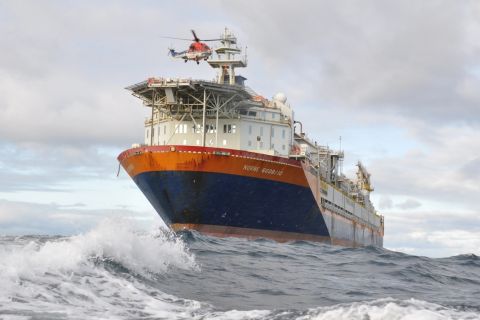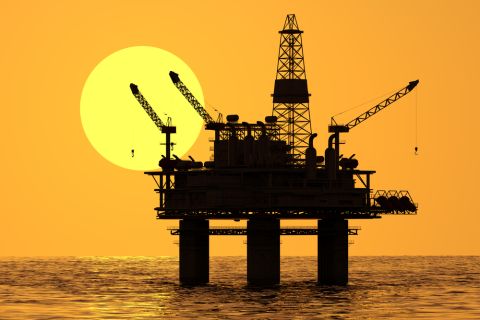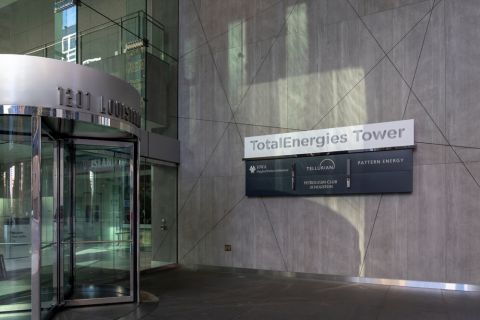
The parallel between Angola and Brazil was drawn over and over again as both majors and independents signed production sharing agreements for acreage offered in the limited international bidding round for access to pre-salt acreage in the Kwanza Basin offshore Angola on Dec. 20.
Statoil is committed to spend about $1.4 billion as the operator of two blocks and participant in three other blocks. After 20 years of experience in Angola, this is the first time that the Norwegian company will be an operator.
Even the independents in the bidding round were bragging about success. Cobalt International Energy Inc.’s chairman and chief executive officer Joseph H. Bryant said, “Cobalt is extremely pleased to be awarded operatorship of Block 20, which was the most sought after block by industry in the pre-salt bid round. Together with our current positions in Blocks 9 and 21 and the Diaba Block in Gabon, Cobalt has the pre-eminent pre-salt portfolio in West Africa.”
With Brazil’s exploration success in its pre-salt areas, expectations on the eastern side of the Atlantic margin boosted the interest in the blocks.
“The Angolan pre-salt is a frontier play with high potential, believed to be analogous to pre-salt Brazil. Early access to a multiple-block portfolio in exploring this new play gives Statoil exposure to significant upside potential should the play be proven”, said Tim Dodson, executive vice president for exploration, Statoil.
Total will be the operator on three blocks. The company drew the same analogies with Brazil. The company noted that the main objective is to explore for pre-salt deposits in these blocks, which share promising geological similarities with the prolific Santos and Campos Basins in Brazil, where in recent years, major discoveries have been made in this type of play.
Water depths over the blocks range from 200 m (660 ft) to 3,400 m (11,220 ft).
BP was another major player in the bidding round, winning access to four more deepwater exploration and production blocks offshore Angola. BP now has interests in nine blocks accounting for a total acreage of 32,650 sq km.
Production sharing agreements were signed for four new blocks covering 19,400 sq km in the Kwanza Basin.
BP was awarded operatorship of Blocks 19 and 24 with 50% interest, and additional non-operating interests in Blocks 20 (20%) and 25 (15%).
Separately, BP had already taken a 40% stake in the 4,840-sq-km Block 26 in the Benguela Basin by agreeing to a farm-in deal with Petrobras, which operates the block.
With Block 26, the five new blocks cover a total area of 24,000 sq km in water depths from 200 to 2,500 m (660 to 8,250 ft).
Statoil was awarded operatorship for Blocks 38 and 39 and partnership in Blocks 22, 25 and 40. Partners in Block 38 are Statoil, 55%, Sonangol P&P, 30%, and China Sonangol International Holding Ltd., 15%. Block 39 partners are Statoil, 55%, Sonangol P&P, 30%, and Total, 15%.
Statoil also has an interest in each of three blocks. In Block 22, Repsol is the operator with 30% interest. Statoil has 20% and Sonangol P&P has the remaining 50% interest. Total is the operator in Blocks 25 and 40 with 35% and 50%, respectively. Statoil, (20%), BP (15%) and Sonangol P&P (30%) are the other partners on Block 25. On Block 40, Statoil has 20% and Sonangol the remaining 30%.
Sonangol’s interest is carried on all blocks during the exploration phase.
Statoil’s $1.4 billion financial commitment includes signature bonuses and a minimum work commitment, which consists of 3D seismic acquisition spanning in total 18,400 sq km and participation in eight exploration wells in total.
The company will also contribute to the development of Sonangol’s Research and Technology Center, social projects and training programs for Sonangol employees.
Statoil is already partner and has shares in Blocks 4/05, 15, 15/06, 17 and 31. The Angolan continental shelf is the largest contributor to Statoil's production outside Norway -- 173,000 barrels of oil equivalent per day (boe/d) in 2010 from three blocks.
ENI signed a production sharing contract (PSC) for the exploration of Block 35, which covers about 4,900 sq km.
The contract requires drilling two wells at the pre-salt play and the acquisition of a 3D seismic survey of 2,500 sq km during the first exploration period, which will last five years.
ENI is the operator with a 30% interest. Other partners are Sonangol P&P, 45%, and Repsol Exploracion, 25%. The company has been in Angola since 1980. Its current equity production is about 130,000 boe/d.
Cobalt was named the operator of Block 20 and has a 40% working interest in the block under this agreement. Other partners include Sonangol P&P (30%), BP Exploration Angola (Kwanza Benguela) Ltd, (20%) and China Sonangol International Holding Ltd. (10%).
“The Block 20 partnership has already initiated the acquisition of a 4,100-sq-km (1,575-sq-mile) 3D seismic program following Sonangol’s conditional award of Block 20 earlier this year. We are planning our first well on Block 20 in 2013,” Bryant explained.
The company also operates Blocks 9 and 21. Block 20 is 12 km (7.5 miles) from the Cobalt-operated Cameia-1 well on Block 21, which is currently being evaluated. The results thus far confirm the existence of hydrocarbons and are very encouraging, he explained.
After Cameia-1 operations are complete, Cobalt will spud its Bicuar-1 well on Angola Block 21 with the Diamond Offshore Ocean Confidence drilling rig.
In addition to being named operator on Blocks 25 and 40, Total is a partner on Block 39 with a 15% interest.
Water depths on Block 40 range from 1,500 to 3,400 m (4,950 to 11,220 ft). The block covers an area of around 7,604 sq km. On Block 25, water depths range from 700 to 2,200 m (2,310 to 7,260 ft). The block contains about 4,842 sq km.
Over an initial exploration period of five years, around 14,000 sq km of 3D seismic will be acquired and five exploration wells will be drilled with pre-salt objectives in aggregate over the three blocks, Total noted.
Recommended Reading
Halliburton’s Low-key M&A Strategy Remains Unchanged
2024-04-23 - Halliburton CEO Jeff Miller says expected organic growth generates more shareholder value than following consolidation trends, such as chief rival SLB’s plans to buy ChampionX.
Vår Selling Norne Assets to DNO
2024-05-08 - In exchange for Vår’s producing assets in the Norwegian Sea, DNO is paying $51 million and transferring to Vår its 22.6% interest in the Ringhorne East unit in the North Sea.
SLB OneSubsea JV to Kickstart North Sea Development
2024-05-07 - SLB OneSubsea, a joint venture including SLB and Subsea7, have been awarded a contract by OKEA that will develop the Bestla Project offshore Norway.
TotalEnergies Acquires Eagle Ford Interest, Ups Texas NatGas Production
2024-04-08 - TotalEnergies’ 20% interest in the Eagle Ford’s Dorado Field will increase its natural gas production in Texas by 50 MMcf/d in 2024.
CEO: Continental Adds Midland Basin Acreage, Explores Woodford, Barnett
2024-04-11 - Continental Resources is adding leases in Midland and Ector counties, Texas, as the private E&P hunts for drilling locations to explore. Continental is also testing deeper Barnett and Woodford intervals across its Permian footprint, CEO Doug Lawler said in an exclusive interview.





